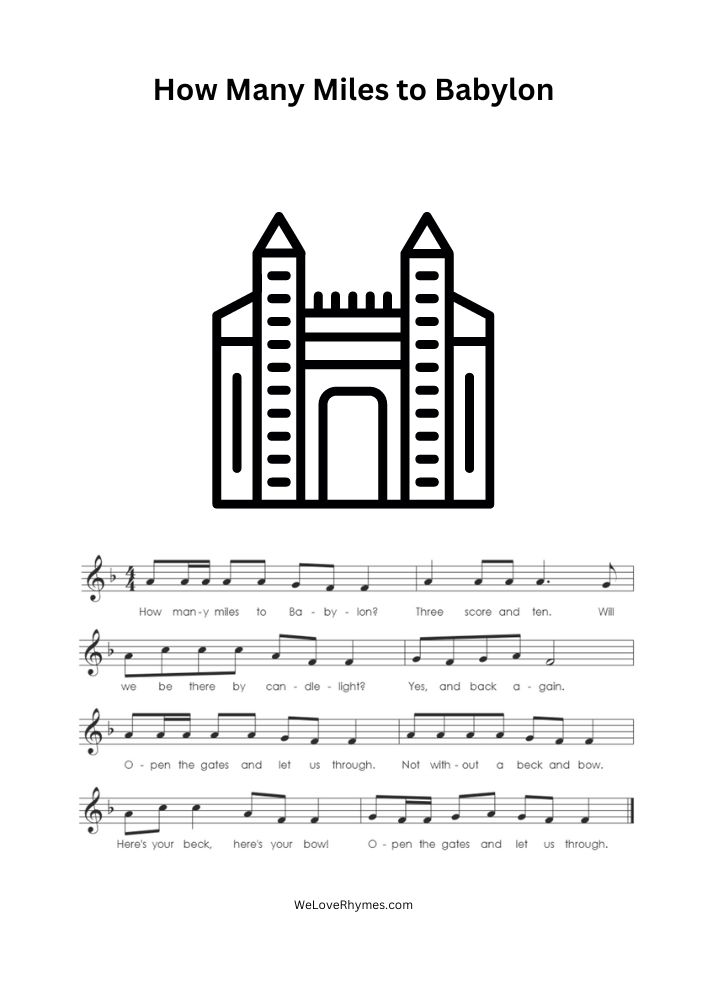How Many Miles to Babylon is a traditional nursery rhyme that dates back to at least 1801. The rhyme probably dates from Tudor times, but many scholars of nursery rhymes point to sayings such as “Can I get there by candle-light?” and “as far as a farthing candle would take him,” common in Elizabethan times, as literal meanings.
It was originally part of a children’s game that involved two lines of players with one “catcher” standing in the middle. When the rhyme ended, all players had to cross to the opposite line, with anyone who was caught assisting the catcher.
The lyrics include a question about whether Babylon can be reached by candlelight. In later periods Babylon was interpreted in at least two very different ways. The first is the everyday meaning in which Babylon is presumed to refer to “Babyland” which also is equated with “Sleepyland,” making this a kind of going-to-sleep rhyme, albeit without the gentle rhythmic qualities of a lullaby. The more exotic version translates Babylon to Babylonia or, by extension, any faraway or wondrous place, real or imaginary. These ancient worlds often fell into this category in the eyes of illustrators. It is this second interpretation that has more boisterous connections to a game. A version in Scottish was also recorded which is slightly longer and references “Cantelon”.
Over the years the location of Babylon has changed to include London and other locations, helping people to personalize the rhyme to help make it easier to learn for young people and more relevant so that they want to engage with it.
How Many Miles to Babylon Lyrics
How many miles to Babylon?
Three score miles and ten.
Can I get there by candle-light?
Yes, and back again.
If your heels are nimble and light,
You may get there by candle-light.
The Scottish version of the song longer with the following lyrics:
King and Queen of Cantelon,
How many miles to Babylon?
Eight and eight, and other eight.
Will I get there by candle-light?
If your horse be good and your spurs be bright.
How mony men have ye?
Mae nor ye daur come and see.
How Many Miles to Babylon Music Sheet




